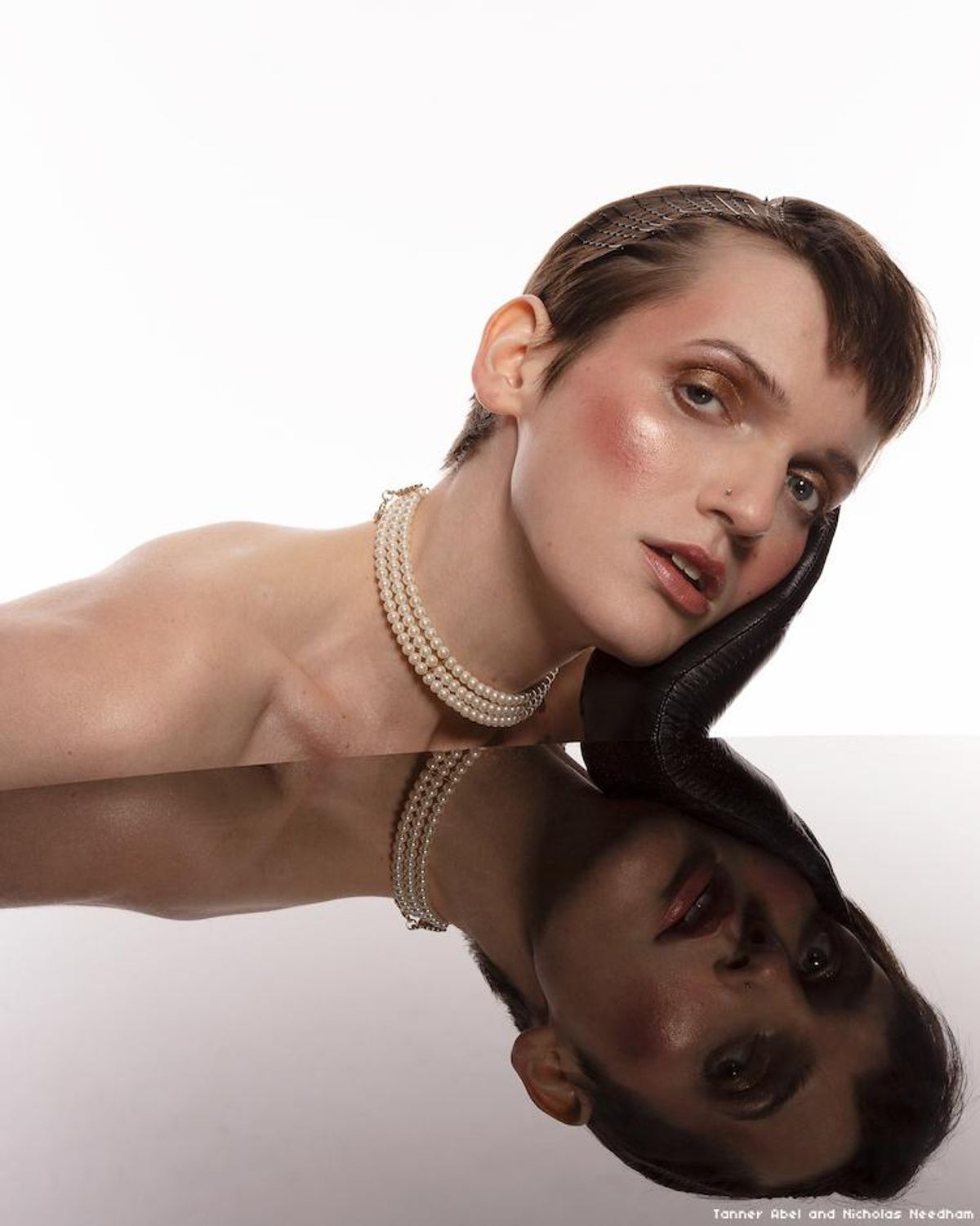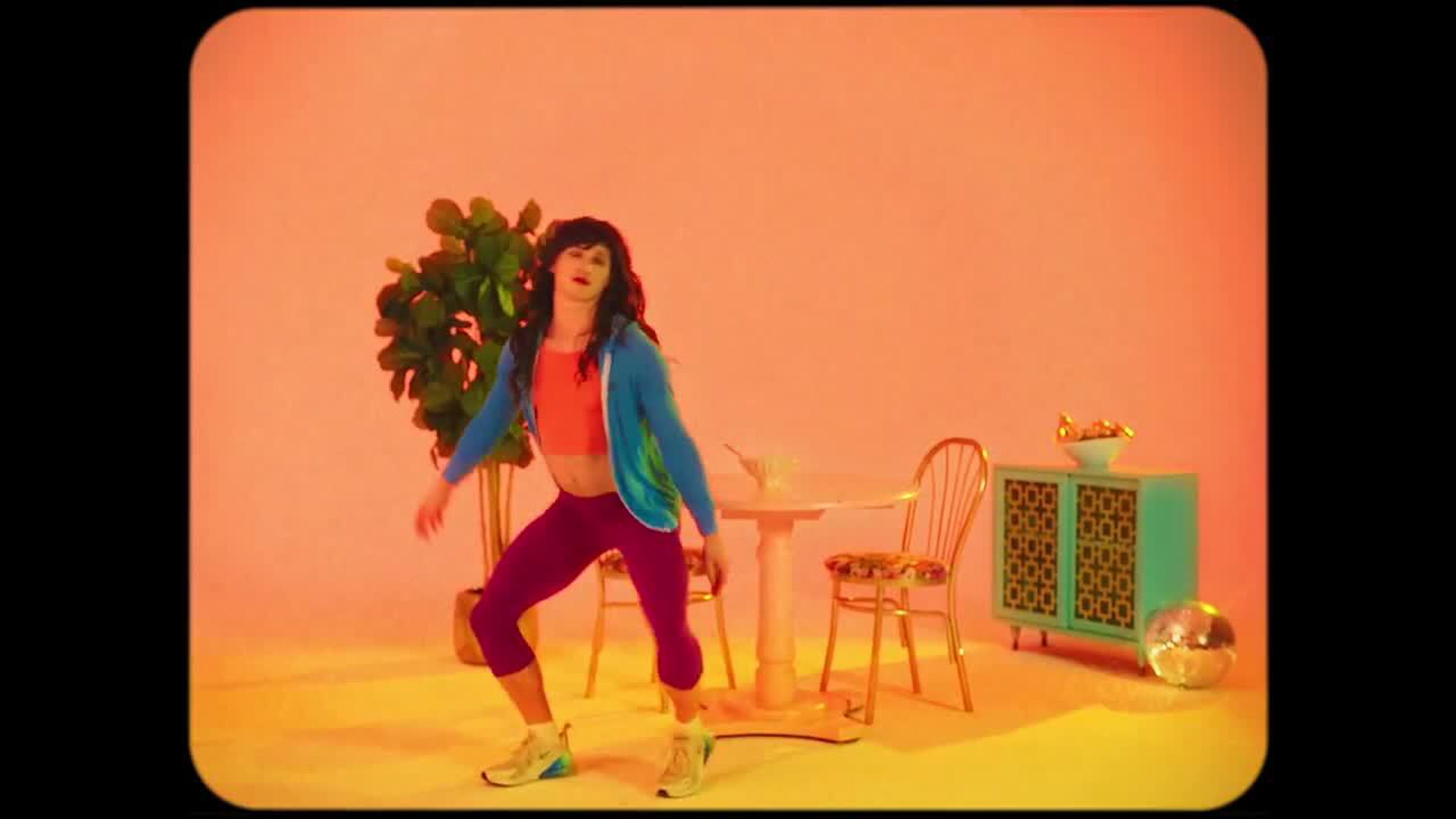Music
Ms. White Writes Love Songs From a Trans Perspective

The jazz-pop musician is back with the music video for “Arizona.”
September 13 2019 4:12 AM EST
September 13 2019 11:09 AM EST
By continuing to use our site, you agree to our Private Policy and Terms of Use.

The jazz-pop musician is back with the music video for “Arizona.”
Ms. White is no stranger to pushing the bounds of popular music. 2017's "Full Grown," for example, documented her transition with a jazz-pop flair. She's doing the same once more with her latest track, "Arizona." Its vulgar lyrics but restrained musical composition is a perfect combination that really lets her talents shine in a way she feels she hasn't before.
"This record is very different from my first record in pretty much every way," she says. "My goal with 'Arizona' was to prime my audience for a more freeform kind of record with the hope of presenting a different gestalt of me as a performer."
In addition to exclusively premiering the Habib Awan-directed music video for "Arizona" below, Out spoke with Ms. White about the track, trans love songs, and her thoughts on people comparing her to singers of the 60s and 70s.

Describe your newest track. How does it compare and contrast with what fans might be most familiar with from you?
It contrasts quite a bit from my other release -- it's the first track I've ever released that uses only piano and vocals. My producer Theo Shier and I wanted "Arizona" to be as barebones as possible in order to put my voice and the lyrics, in this particular song, front and center. The lyrics are so purposefully vulgar and attention-grabbing we just didn't feel like it needed much else. Also, during the writing of this album, I played a lot of shows with only me and the piano, and with my previous songs I felt very much like I hadn't really showcased my ability to just play piano and sing.
What were you hoping to accomplish and portray with this video?
The idea came about after I saw Ash Yergens, who plays the main character, perform a solo show called prettygirl264264, in which he performed in drag as his pre-transition self. He did it in such a comical yet vulnerable way that it gave me and my producer Madison Seely the idea to have Ash play "me" in this video. Though I would like to leave some of it up to interpretation, I do feel the need to clarify certain things. Ash is playing what is essentially a personification of my dysphoria throughout a few intimate relationships I had with straight cis men early on in my transition. I didn't feel entirely comfortable playing that character myself, and after seeing prettygirl264264 I knew he would do a better job than I would anyway. Plus, having another trans person embody my dysphoria made me feel safe and more confident in executing my vision.
So, the video is sort of a slow downward spiral of what it feels like when intimacy warps your self-perception to an almost hysterical degree. I wanted to capture the smiling through gritted teeth feeling when you know you're being fetishized or treated like an experiment, but letting it continue for the sake of feeling "normal."
I also think that there is a universal feeling for creative trans people that we need to be digestible and likable in order to be successful, so a lot of trans creatives end up feeling like they have to dilute their vision in order to please the audience. I easily could have worn some fancy outfit and sang this song to the camera with an attitude and gotten countless "yas queens" from the gays -- and I did feel that urge -- but I am far more interested in pushing buttons. I am lucky enough to have the resources to pay for this on my own, so I might as well use that privilege to say what I really mean and not what someone else wants me to say. I don't really feel the need to write about being trans after this, it's not particularly poetic or interesting after a certain point, so this was my shot to contribute something of actual use.
"Arizona" is very much about loving as a trans woman. Describe for me your reasons behind leaning into that.
There are so many love songs out there and quite frankly I am monstrously bored -- they all say the same thing. There are so few publicly visible trans musicians with access to the resources and space and support they need in order to write and perform their own love songs that I wanted to use my privilege to give us something actually relatable. Love songs from a trans perspective, whether happy or sad, are almost nonexistent. So when I found myself in the midst of the very common trans experience of being a well-kept secret by the guy you've been seeing, all I wanted to do was to write a loud, vulgar, in your face song about being kept quiet. It ended up being one of those hour-long songwriting vomit sessions that turn into a halfway decent song, and I thought how cool it would be for me to get to release something like that. And even though my experience is just one trans girl's experience, I know a lot of people feel this way. So, my goal is just to have at least one other trans person out there hear this song and feel held and feel like they relate and maybe belt it in their car driving down the highway like all the straights belting John Legend.
You've been compared to singers of the 60s and 70s. What are your thoughts on those comparisons? How do you think you're taking that classic sound and modernizing it?
I love those comparisons, though my answer deals a bit more with music from the 1930s to the 1970s, rather than just the 60s and 70s. I have a complicated relationship with older music, especially music from those eras, because it's so gorgeous and yet devoid of any context in the modern world. To bring it back to the previous question, a lot of popular music back then were still love songs, and they were almost comically sappy and overindulgent -- more of a fantasy than a reality. At the same time, however, I think that music from the mid-1900s contained some of the most beautiful and well-written melodies, chord progressions, and lyrics ever. Songs like "I Only Have Eyes for You" sung by Frank Sinatra (or The Flamingos), or "Stardust" by Nat King Cole, or even Bobby Vinton's "Blue Velvet" are such masterpieces, but they don't hold up in a modern context. They evoke a nostalgia but they're almost too pretty and conservative to really feel relatable anymore. I want to evoke what's happening now. So a lot of my goal has been to learn how to write a song like "Yesterday" or "Cry Me A River" or "Unforgettable" while consistently interrogating what that would sound like now. I love a lot of contemporary music, so the modernization comes sort of automatically that way. The end result ends up being a mesh of retro sounds, like strings compressed through a vinyl plug-in or barbershop a cappella vocals that are auto-tuned or something. [Producer] Theo Shier and I are using technology to mix across eras in a way that has only recently become possible. It's exciting work, waking up every day and asking ourselves, "What does future music sound like?"
RELATED | On 'Full Grown,' Ms. White Documents Her Transition Through Infectious Jazz-Pop
Sexy MAGA: Viral post saying Republicans 'have two daddies now' gets a rise from the right